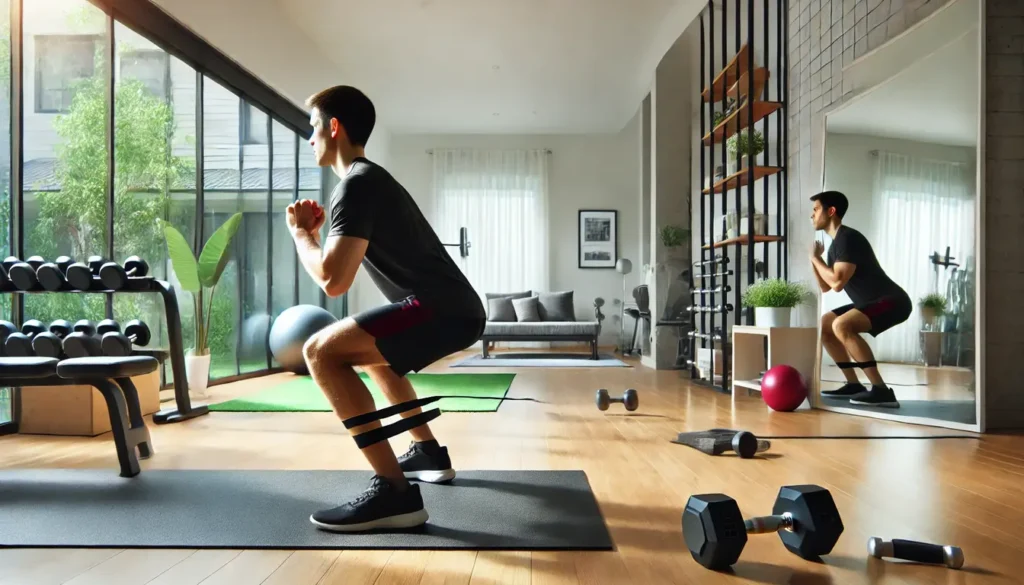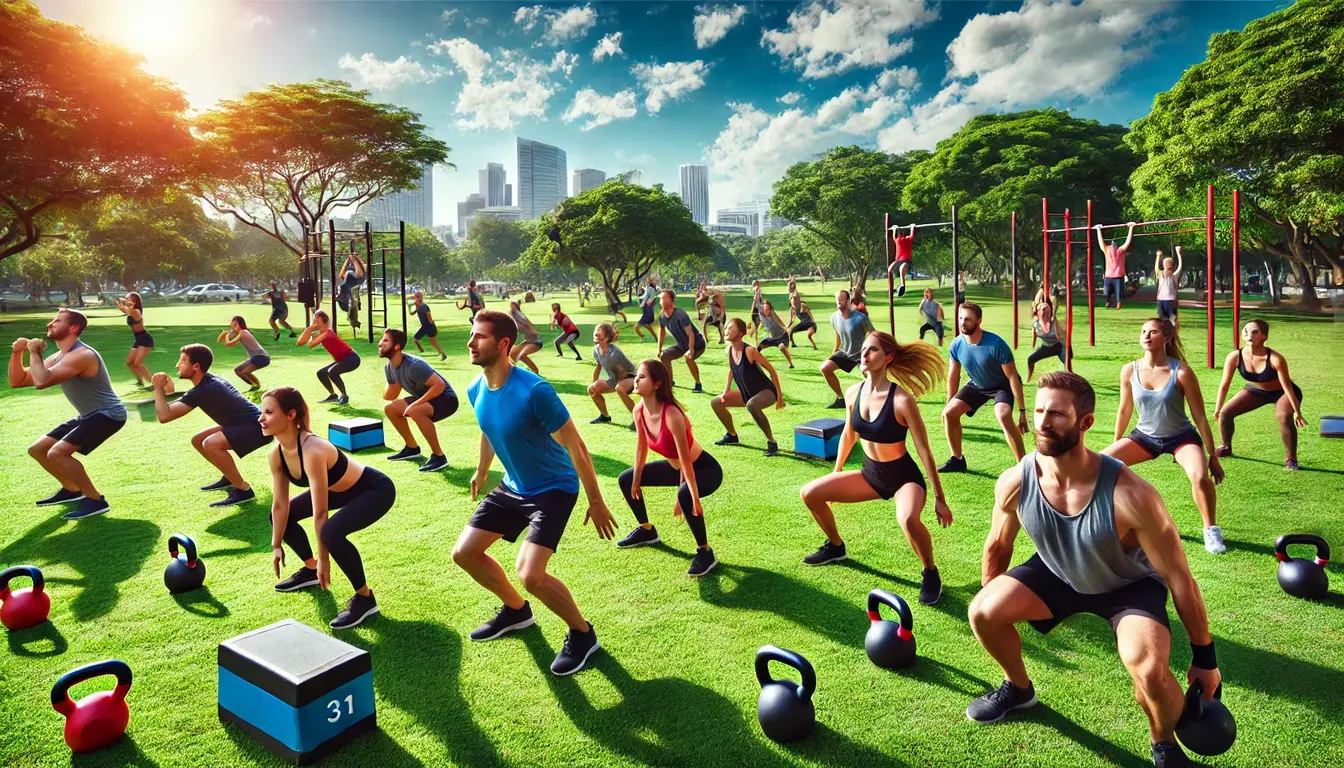Imagine waking up each morning feeling energized, strong, and ready to take on whatever life throws your way. Whether it’s lifting grocery bags, playing with your kids, or simply climbing stairs without getting winded, enhance your everyday life with functional fitness as your secret weapon to living a more capable and fulfilling life. In today’s fast-paced world, staying physically active isn’t just about hitting the gym or achieving that ideal body—it’s about supporting your everyday life with movements that matter.
Functional movement training is more than just a workout—it’s about training your body to be ready for real-life situations. Unlike traditional workouts that focus solely on aesthetics, functional fitness is about making sure your body can handle the challenges of daily life with strength, agility, and confidence.
What Is Functional Fitness?
Before we dive into the benefits and practical applications of functional fitness, let’s break down what it means. Functional fitness is a form of exercise that trains your body to perform everyday activities more efficiently. Unlike traditional workouts that focus on isolated muscle groups, functional fitness emphasizes exercises that mimic real-life movements. These movements typically involve multiple muscle groups working together, improving your overall strength, balance, coordination, and flexibility.
Think about the actions you perform daily—bending, lifting, pushing, pulling, twisting, and walking. Functional fitness integrates these movements into your workout routine, making your body more adept at handling the demands of daily life. The beauty of functional fitness is its versatility—it’s not just for athletes or gymgoers; it’s for everyone, regardless of age or fitness level.

The Core Benefits of Functional Fitness
Improved Daily Functionality
One of the most significant benefits of functional fitness is its direct impact on your day-to-day activities. By training your body through functional movement training, you’ll find that tasks like carrying heavy groceries, picking up your kids, or even rearranging furniture become easier and less taxing on your body. You’re not just building muscle; you’re building a body that works better for you.
Enhanced Balance and Coordination
Functional strength workouts often require the engagement of your core muscles, which are crucial for maintaining balance and stability. This is particularly beneficial as you age, since good balance and coordination can help prevent falls and injuries. By practicing exercises that challenge your stability, such as lunges or single-leg deadlifts, you’ll develop a stronger sense of balance that carries over into your everyday life. Consider using the Bosu Balance Trainer to enhance your balance training.
Increased Strength and Endurance
While functional fitness isn’t about lifting the heaviest weights, it does involve strength training that enhances your muscle endurance. Exercises like squats, push-ups, and kettlebell swings engage multiple muscle groups, leading to more functional strength. This kind of strength isn’t just for show—it’s the kind of strength that makes you feel powerful when you need to carry something heavy or tackle a physically demanding task. Consider incorporating the Kettlebell Kings Adjustable Kettlebell into your routine for versatile and effective strength training.
Reduced Risk of Injury
Because functional fitness focuses on natural movements, it helps reduce the risk of injury both during workouts and in daily life. Traditional workouts can sometimes lead to muscle imbalances, where certain muscles become overdeveloped while others remain weak. This imbalance can increase the likelihood of injuries. Functional strength workouts promote balanced muscle development and improve joint stability, making you less prone to strains, sprains, and other common injuries.
Better Posture and Mobility
Functional fitness encourages proper body mechanics, which can improve your posture and increase your range of motion. Exercises like planks, hip bridges, and thoracic rotations help strengthen your core and back muscles, which are essential for maintaining good posture. As your mobility and flexibility improve, you’ll find it easier to move through your day with ease and grace. To assist in enhancing your flexibility and relieving muscle tension, try using the TriggerPoint GRID Foam Roller.

How to Incorporate Functional Fitness into Your Routine
Now that you understand the importance of functional fitness, let’s explore how you can integrate it into your daily routine. The best part? You don’t need any fancy functional fitness equipment or a gym membership to get started.
Start with Bodyweight Exercises
If you’re new to functional fitness, begin with bodyweight exercises that mimic everyday movements. Squats, lunges, push-ups, and planks are excellent starting points. These exercises engage multiple muscle groups and can be performed anywhere, making them ideal for beginners.
- Squats: Mimicking is the motion of sitting down and standing up, which strengthens your legs and core.
- Lunges: Improve your balance and strengthen your lower body, essential for walking and climbing stairs.
- Push-Ups: Strengthen your upper body and core, useful for pushing heavy objects.
- Planks: Engage your core muscles, supporting better posture and stability.
For a versatile and effective bodyweight workout, consider incorporating the TRX Training All-in-One Suspension System into your routine.
Incorporate Everyday Objects
You don’t need a gym full of equipment to practice functional fitness. Everyday objects like water bottles, grocery bags, or even your kids can serve as weights, making your workout both practical and accessible. For example, try lifting grocery bags in a way that mimics picking up a heavy box, or carrying your child around to build arm and core strength. These activities not only improve your functional strength but also seamlessly integrate exercise into your daily routine.
However, if you’re looking to add more resistance and variety to your workouts, consider using the Fit Simplify Resistance Loop Exercise Bands. These bands are versatile, portable, and perfect for enhancing your strength training at home or on the go.
Focus on Multi-Planar Movements
Life doesn’t happen in just one direction, so your workouts shouldn’t either. Incorporate exercises that move your body in multiple planes—forward, backward, sideways, and rotationally. This approach better prepares your body for the diverse range of movements you perform daily.
- Side Lunges: Strengthen your legs and improve your lateral stability.
- Russian Twists: Engage your core and improve rotational strength, essential for activities like turning to grab something from the back seat of your car.
- Woodchoppers: Simulate the motion of chopping wood, which strengthens your core, arms, and shoulders.
Add Functional Fitness to Your Daily Life
You don’t always need to set aside time for a formal workout. Look for opportunities throughout your day to incorporate functional fitness. Take the stairs instead of the elevator, perform squats while brushing your teeth, or do calf raises while waiting in line. These small actions add up and contribute to a more functional and capable body.
Try Functional Fitness Classes
If you prefer guided workouts, consider joining a functional fitness class. Many gyms and online platforms offer classes specifically designed to improve functional movement patterns. These classes often include a mix of strength training, cardio, and mobility exercises that align with the principles of functional fitness.

Functional Fitness for Different Life Stages
Functional fitness isn’t a one-size-fits-all approach; it can be tailored to suit your specific needs, regardless of your age or fitness level.
For Young Adults
As a young adult, you may not yet feel the wear and tear of aging, but that doesn’t mean functional fitness isn’t for you. Engaging in functional exercises now can build a strong foundation for the future, making you more resilient to injuries and better prepared to handle life’s physical demands. Plus, the functional strength you develop can enhance your performance in sports and other physical activities.
For Parents
Parenting is physically demanding, from lifting toddlers to chasing after energetic kids. Functional fitness can help parents build the strength, stamina, and flexibility needed to keep up with their children without feeling exhausted or risking injury. By focusing on exercises that mimic parenting tasks, such as deadlifts (think lifting your child from the floor) or farmer’s carries (holding heavy bags), you’ll be better equipped to handle the daily challenges of parenthood.
For Older Adults
As we age, maintaining functional fitness becomes even more critical. Older adults often face challenges such as reduced balance, strength, and mobility, which can impact their independence. Functional fitness exercises that focus on balance, coordination, and flexibility can help older adults stay active and self-sufficient for longer. Simple activities like standing on one leg while brushing your teeth or practicing sit-to-stand movements can make a significant difference in daily life.
Conclusion
Supporting your everyday life through functional fitness is about more than just working out—it’s about enhancing your ability to live life to the fullest. By focusing on movements that mimic real-life activities, you can build a stronger, more resilient body capable of handling whatever comes your way. Whether young or old, a parent or a professional, functional fitness offers a practical, effective, and accessible way to improve your overall health and well-being. For more ways to boost your daily fitness routine, check out our post on How Climbing Stairs Boosts Heart Health and Longevity.
So, why not start today? Incorporate a few functional exercises into your routine and experience the difference they can make in your daily life. You’ll be amazed at how much better you’ll feel—and how much more you’ll be able to do—when your body is truly equipped to support you every step of the way.






